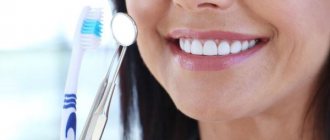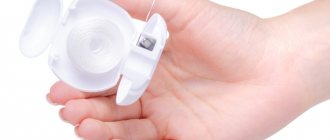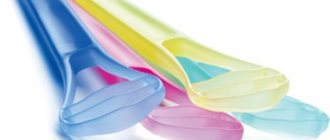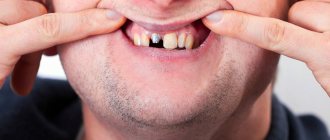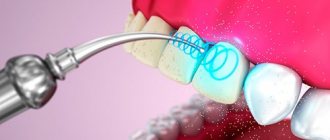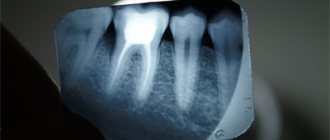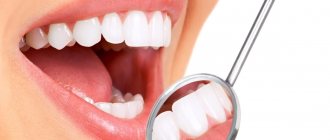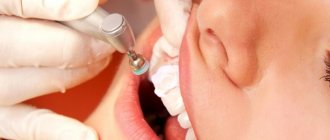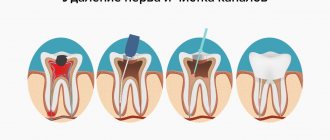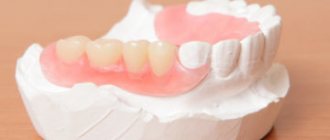If you have a temporary adaptive prosthesis installed and if you have not yet gone through its replacement, then you will need to change the design to a permanent one in the near future. Your doctor will tell you about this need at your next preventive examination or during comprehensive hygiene. Some of the symptoms that we have reflected in this leaflet will also tell you that it is time to change the prosthesis.
The recommendations indicated in the leaflet are relevant only for those patients who have passed the adaptation period, i.e. only after complete implantation! For those who have just had implants installed or only a few weeks/months have passed since the operation, there are completely different recommendations, which can be found here.
Your dentures will last for the rest of your life! Lifetime guarantee for implantation and doctor’s care - we value your health!
Free consultation
General rules: what is allowed and what is prohibited
- air travel – fly and travel without restrictions, explore the world and taste new dishes (but with minor restrictions - more about them in the “food” section),
- physical activity – play sports and maintain your health. But exclude lifting excessive weights (in particular, when doing powerlifting) and sports activities that are associated with injuries to the maxillofacial area,
- visit swimming pools without restrictions, but use baths and saunas with caution (severe overheating is not recommended). The temperature of the steam room should be average, the length of stay should be minimal (no longer than 10 minutes),
- keep your body healthy. If you have been diagnosed with diabetes mellitus or diseases of the cardiovascular system, remember that if the condition worsens, metabolic disorders in periodontal tissues may occur, which carries a risk of rejection of structures. Be sure to take medications prescribed by your specialist and monitor your blood pressure and blood sugar.
Visit your doctor at least once a year for a preventive examination, and in case of unsatisfactory self-hygiene and doctor’s indications, more often - 2-4 times a year for professional oral hygiene. This will allow, firstly, to maintain healthy gums and achieve high-quality cleansing of pathogenic microflora, and secondly, to eliminate possible complications in the early stages and promptly eliminate them.
Pregnancy with dental implants
If you had dental implantation at a young age, then you can safely prepare for pregnancy - the presence of an implant is not a contraindication (provided that the structure has already fully fused with the bone tissue). The only thing you need to pay attention to is the condition of periodontal tissues during pregnancy, since hormonal changes occur during this period and gingivitis and periodontitis often occur, i.e. inflammation of the gum tissue.
During the entire period of pregnancy, it is necessary to see your dentist and pay increased attention to hygiene (you also need to see a therapist or hygienist more often - up to 3-4 times a year). It is also advisable to take vitamin complexes (calcium, vitamin D), unless, of course, there are contraindications. But only under the strict supervision of attending physicians (dentist and gynecologist).
Vitamins
The doctor decides what medications to take after dental implantation. In the same way, you need to understand that vitamins cannot be prescribed to yourself either.
Calcium D3 Nycomed is a remedy that regulates the exchange of phosphorus and calcium in the body, replenishing the deficiency. It must be taken after a course of antibiotics for 1 month. Calcium is the main component of hard tissues, because during the operation the bone injury required to drill out the working area where the structure is implanted is implied.
Ascorbic acid must be taken in an amount of 200-500 mg per day for a month. It improves the metabolic process and is required both at the stage of surgery and after it during the rehabilitation period.
Multivitamins should be taken three times a day, one tablet. The need for its intake is similar to ascorbic acid.
Implantation and smoking
It is mandatory to quit smoking in the first 3-4 days after surgery to install implants (or before removing sutures, if they were applied). After the osseointegration process is completed, smoking is allowed, but you need to remember that the tars and carcinogens contained in cigarettes lead to increased accumulation of plaque, burns of the mucous membrane, and disruption of metabolic processes between the cells of all periodontal tissues. As a result, the risk of developing inflammatory processes and implant rejection increases. There is also a change in shade and rapid wear of the denture.
Therefore, we recommend giving up this bad habit completely. If this does not work, then you need to at least minimize the number of cigarettes consumed per day or switch to electronic analogues with a reduced content of harmful substances.
After smoking, be sure to perform oral hygiene - brush your teeth with toothpaste and a brush, rinse your mouth with mouthwash. This is a mandatory procedure that will minimize harmful effects.
If you smoke, then a complex of oral hygiene with a dental hygienist, together with a preventive examination of the condition of periodontal tissues, implants and dentures after complete implantation, must be completed more often than usual - at least 2 times. Talk to your hygienist about how best to enhance your hygiene.
Medications after implantation
The early postoperative period should be accompanied by mandatory medications prescribed by a doctor.
Medicines from the pharmacy
The choice of a specific drug, dosage and duration of therapy is determined by a specialist. After implantation, the following may be prescribed:
- Antibiotic (for complex surgery).
- Antihistamines.
- Non-steroidal anti-inflammatory drug.
- Vitamins, calcium-containing preparations to accelerate the healing of sutures and bone regeneration.
- Probiotics (if an antibiotic is prescribed).
- Solcoseryl paste for processing seams.
Folk remedies at home
Use only after consulting a doctor. Gives a good effect :
- Applications based on sea buckthorn or rosehip oil. The keratoplastic property of these herbs accelerates wound healing. Must be used every 2-3 hours.
- Rinse with decoctions of chamomile, calendula, sage, etc.
- Use a saline rinse immediately after surgery to reduce swelling and pain.
Implantation and alcohol
Remember that the effects of alcohol are very harmful to the entire body. Therefore, we insist that the consumption of drinks that contain even a negligible amount of alcohol must be limited and kept to a minimum.
- While intoxicated, you may perform inappropriate actions. For example, getting into a fight, which will lead not only to damage to the prostheses, but also to displacement of the installed implants,
- hygiene is difficult or impossible - when a person is heavily intoxicated, he cannot control his actions. If you carry out hygiene in this state, you can damage the gums around the implants, which can lead to the development of inflammation and subsequent rejection of the structures,
- appetite increases - you can damage the implants by eating prohibited, too hard food,
- your immunity will stop working at full strength,
- alcohol has a negative effect on the mucous membranes, especially if they are inflamed (you may not know about the presence of a problem if you have not had a preventive examination with a doctor for a long time),
- you forget that you need to visit a doctor: such situations arise in cases where the patient drinks alcoholic beverages for a long period of time,
- you may lose your warranty.
Drinking alcohol should not become an obstacle to living a full life and maintaining the results of expensive treatment!
What to do in the early recovery period
Even after a perfectly performed implantation, complications may arise as a result of improper care or failure to follow the doctor’s instructions:
- exclusion from the diet of hard, spicy, hot and too cold foods;
- minimizing physical activity;
- exclusion of visits to the bathhouse, solarium, beach, as well as flights and diving;
- abstaining from smoking and alcoholic beverages;
- strict adherence to oral hygiene.
In the first days after implantation, especially if tissue plastic surgery was performed, you should not intensively blow your nose, sneeze, cough, or make sharp turns or bends. The decision to lift restrictions can only be made by the doctor after an examination.
Rules of nutrition after implantation
Your diet has long become complete - the period has passed when quite strict restrictions were imposed in terms of the hardness of foods and the temperature of dishes. However, even now, after the implants have completely implanted, you will still have to give up a number of products.
- Chew food thoroughly, using both sides - all installed implants should receive an even load. If there is discomfort and you notice that you are chewing food on only one side, consult a doctor immediately.
- introduce a maximum of healthy foods into your diet - food should be rich in various groups of vitamins,
- Do not bite off hard vegetables and fruits - they must first be cut into small pieces. It is better to grate carrots before eating, because... it's too hard to chew
- It is better to exclude shish kebab and hard fried meat - give priority to boiled, stewed meat, and cutlets. The veins contained in meat products get clogged under the prosthesis - it is very difficult to remove them,
- nuts are prohibited - the problem is not even that they are too hard. Like meat, they get stuck under the prosthesis and are very difficult to remove from under it,
- but at the same time, the food should not be soft - it is important to give a reasonable load to both prostheses and implants,
- it is important to drink as much water as possible, chilled herbal or fruit teas,
- exclude (or at least minimize) wine, beets, black tea and coffee, which lead to staining and permanent discoloration of the denture,
- also exclude foods and drinks that contain acids, bites - they can lead to irritation and inflammation of the mucous membranes,
- It is allowed to drink hot drinks and eat cold ice cream, but you cannot combine them to avoid sudden temperature changes.
Use your teeth only for their intended purpose, namely for chewing food! They cannot be used to open bottles, remove corks, or crack nuts. Although they are artificial, they will easily break under increased load.
Hygienic care rules: how to care for teeth and implants
The most important thing when you have both your own teeth and their analogues is high-quality oral hygiene: in the morning, in the evening and after each meal.
To maintain oral health, it is necessary to take care of both the denture and the oral mucosa that comes into contact with it.
The set of your hygiene products should be as follows (the photos show only examples - please note that more precise recommendations for care and selection of products will be given to you by your attending physician or dental hygienist, who will conduct examinations and comprehensive teeth cleaning):
1. Toothbrush
After the implants have healed, you should use a medium-hard brush (regular, not electric).
The surgical area is easy to injure, so the gums should be treated with special attention. The denture must be cleaned 2 times a day with sweeping movements from the artificial gum to the cutting edges of the teeth. If we consider soft brushes, then you should choose only the Curaprox brand (better - model 5460 ultra soft). They have ultra-fine bristles in large quantities, which very effectively, but at the same time carefully and safely clean the enamel and surface of the gums from plaque. Ordinary soft brushes cannot be used - they do not cope with plaque removal.
Also buy a mono-tuft brush - it will help you clean the denture in hard-to-reach places.
Change your toothbrush every 3-4 months, as a large number of bacteria accumulate on it, which can lead to the development of an inflammatory process.
2. Toothpaste
It is better to choose a paste with a therapeutic and prophylactic orientation based on herbs, which helps strengthen the gums and thereby protects the mucous membranes from damage and prevents inflammatory processes. Recommended brands include Parodontax, ROCS, and Forest Balsam. The use of toothpastes containing whitening abrasive components (hydrogen peroxide, soda) is not allowed.
3. Irrigator
An irrigator is a semi-professional device that, using a jet of water supplied under pressure, allows you to thoroughly clean the space between the teeth, as well as between the denture and the gum. At the same time massages the gums, improving blood circulation. The irrigator nozzle must be directed into the flushing space of the prosthesis (the area between the prosthesis and your own gum). The speed at which the liquid is supplied is adjusted depending on the brand of irrigator. Start with minimum speed and gradually increase, but only to average pressure.
4. Dental floss
It is worth choosing “super floss” products, which are designed specifically for dentures and cleaning the washing space. They clean and polish the surface of the denture facing the gum very well.
5. Mouthwash
It is selected individually on the recommendation of your dental hygienist based on the characteristics of the oral cavity.
Important! Do not confuse “super floss” with regular floss for interdental hygiene - these types of dental floss are harsh and can damage the gums around the implant. This can lead to rejection of the installed structures. Also, if you have any dentures (including those supported by implants), the use of toothpicks and brushes is strictly PROHIBITED.
How to properly perform oral hygiene?
- Start morning and evening hygiene by cleaning the interdental space with floss or irrigator, then use a brush and paste. The movements of the brush should be from the artificial gum to the cutting edge of the teeth. Use the brush without pressure/pressure. Finally, use the irrigator again, rinse your mouth with water or mouthwash,
- after a meal (and even a small snack) - the following hygiene complex: it is not necessary to brush your teeth, but it is necessary to thoroughly clean all the gaps in which food could get stuck - especially between the gums and the denture. Use dental floss and/or irrigator, rinse your mouth after
- if any food fragments get between the denture and the gum that you cannot eliminate with the recommended means, you must contact a dental hygienist,
- It is prohibited to use electric toothbrushes, since vibrations and excessive pressure during the cleaning process (especially in the first months after implantation) can lead to poor fixation of the implants,
- Use dental floss with caution and only use one that is marked “super floss” for dentures: the floss can damage the gums around the implant (they are less sensitive than with living teeth, and you will not be so clearly aware of when you need to stop flossing because of due to the absence of pain), bacteria can subsequently enter the tissue around the implant and lead to its rejection,
- Professional teeth cleaning should be carried out with caution and only by those specialists who have appropriate experience in hygiene in the presence of dental implants.
Following simple recommendations will significantly extend the life of implants and prostheses on them. With careful care, problems with implants will not bother you for the rest of your life.
When should you see a doctor?
Contact your healthcare provider if you experience the following symptoms:
- unexpected pain, increased body temperature, chills,
- numbness of the maxillofacial area, which was not there before,
- when pressing on the implants, discomfort or sharp pain occurs,
- redness of the gums, swelling of the mucous membrane, bad breath appeared,
- there is pain in the temporomandibular joint, it is difficult to move the lower jaw, it crunches or does not open/close,
- the teeth do not close together (along the entire length of the dentition or only on one side), there is a feeling of displacement of the prosthesis,
- the prosthesis became mobile, some of the teeth chipped,
- It hurts to chew on one side or use all of your teeth.
The very first and most dangerous period, in which complications most often arise, is left behind. But this doesn't mean you need to relax and forget about your teeth. If you have chosen an adaptive prosthesis, then the next step is to replace it with a permanent structure. In addition, complications can arise after the implants are completely implanted (but this happens extremely rarely). Therefore, just follow your feelings, especially since enough time has already passed and you have an understanding of what is normal and what is a deviation from it. Be attentive to your teeth and your body - be careful and the implants will answer you in kind!
Read more questions and answers about dental implantation in our special section.
How long does it take to heal?
Bone tissue and gums heal after dental implantation on average from three to six months, and the period is different for the upper and lower jaws. The lower jaw will heal in three to four months, but the upper jaw will take longer: four to six months. This is due to the greater bone density of the lower jaw.
Sometimes the healing rate deviates from the average time frame, because it depends on the individual characteristics of the patient’s body: the speed of regeneration, the strength of the immune system, the pain threshold. Even such factors as gender, age, lifestyle, diet and daily routine of the patient are important.
In any case, recovery after surgery takes some time. Following medical recommendations will help protect yourself from complications during healing.
